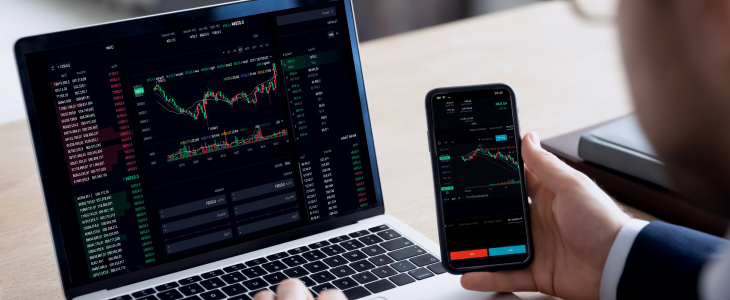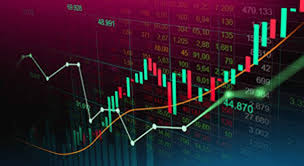
Forex trading has become one of the most popular means of investment in recent years, drawing in millions of traders worldwide. However, with the increase in popularity, the prevalence of scams has also surged. To protect your finances and ensure a safe trading experience, it is crucial to be aware of the various forms of scams that exist in the forex market. In this article, we will explore the different types of forex trading scams, how to recognize them, and steps to take to safeguard yourself. For more information on legitimate trading opportunities, visit forex trading scam https://onlinetrading-cm.com/.
What is Forex Trading?
Forex, or foreign exchange, is the global marketplace for buying and selling currencies. It is the largest financial market in the world, with a daily trading volume exceeding $6 trillion. Forex trading allows individuals and institutions to take advantage of currency fluctuations, providing opportunities for profit. However, the decentralized nature of this market also makes it vulnerable to fraud and scams.
Types of Forex Trading Scams
Forex scams come in various forms, and being able to identify them is essential for your protection. Here are some common types of forex trading scams:
1. Pyramid Schemes
Pyramid schemes promise high returns with little risk, enticing more traders to invest. Participants earn money mainly by recruiting new members rather than from actual trading, leading to inevitable collapse and financial loss for the majority.
2. Ponzi Schemes
Similar to pyramid schemes, Ponzi schemes promise higher-than-average returns and pay existing investors with the capital from new investors. Eventually, the scheme collapses when there are not enough new investors to pay returns, leaving many without their original investment.
3. Fake Trading Platforms
Scammers create fraudulent trading platforms that mimic legitimate ones. These platforms often guarantee high returns, but once money is deposited, it becomes nearly impossible to withdraw or recover. Researching the legitimacy of a trading platform is essential before making any commitments.
4. Managed Account Scams
In these scams, investors hand over their funds to “professional traders” who claim they can generate significant profits. However, these traders often do not have the expertise they claim, and investors wind up losing their money.
5. Signal Provider Scams
Signal providers offer tips on when to buy or sell currency pairs for a fee. While there are legitimate signal providers, many are scams that promise unrealistic returns, using misleading information to entice traders to follow their signals.
How to Recognize Forex Scams

Recognizing forex scams is not always easy, but some common red flags can help you stay cautious:
- Promises of Guaranteed Returns: If it sounds too good to be true, it probably is. Be wary of any investment that guarantees profits with little to no risk.
- Lack of Transparency: Legitimate trading programs should provide clear and accessible details about their operations, including their strategies, fees, and performance history.
- High-Pressure Sales Tactics: Scammers often use aggressive tactics to push individuals into making quick decisions. Take your time to research and avoid feeling rushed into an investment.
- Unregulated Brokers: Always check if the broker is regulated by a recognized authority. Unregulated brokers are more likely to engage in fraudulent activities.
- Vague or Misleading Information: Be cautious if the information provided is not clear or seems to lack substance. Legitimate companies will have a well-defined plan and structure.
Steps to Protect Yourself from Forex Scams
While the forex market can be lucrative, it is essential to take precautions to safeguard your investments. Here are some steps you can take:
1. Research
Thoroughly research any broker or trading platform before investing. Look for reviews, track records, and any complaints from users. Websites that offer evaluations and comparisons of brokers can be particularly useful.
2. Verify Regulation
Ensure that the broker is regulated by a reputable financial authority. Regulatory bodies enforce strict guidelines for financial operations and can provide some level of protection for investors.
3. Start Small
When entering the forex market, start with a small investment to test the waters. This approach allows you to gain experience and gauge the reliability of the trading platform without risking a significant amount of money.
4. Use a Demo Account
Most reputable brokers offer demo accounts that allow you to practice trading with virtual money. Using a demo account can help you learn the market without the risk of losing real funds.
5. Be Skeptical of Unsolicited Offers
If you receive unsolicited emails or phone calls offering forex trading opportunities, treat them with skepticism. Scammers often target unsuspecting individuals through cold calls or spam emails.
Conclusion
Forex trading offers incredible opportunities for investors, but it also comes with risks, particularly regarding scams. By understanding the various types of forex trading scams, recognizing red flags, and taking proactive steps to protect yourself, you can enjoy a more secure trading experience. Remember, education and caution are your best defenses against potential fraud in the forex market. Stay informed, and always verify before you invest.


